The idea of the “utopian” community began in 1516 with Sir Thomas More’s fictional perfected society to present-day attempts to build the most sustainable urban ecosystem. With the case of Songdo International Business District, South Korea, the move toward smart eco-cities implies either living together in harmony, and/or a new series of technologies marketed under the “eco” banner.
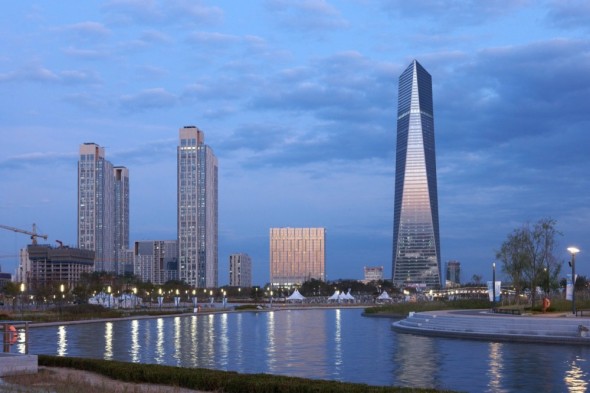

Songdo International Business District (IBD), South Korea
Songdo IBD, on the South Korean coast is an ambitious new community project and the most expensive real estate venture in the world. Scheduled for completion in 2016, Songdo, a designated “Free Economic Zone” with advanced technology infrastructure, is under construction on 1,500 acres of reclaimed land from Incheon Bay on the Yellow Sea.
With 600 acres of open space and parks and environmental attributes like wind turbine power and rainwater collection, it aims to be the world’s first LEED-certified city. Designed to emit a third of the greenhouse gases of a typical metropolis its size, it also markets itself as an “aerotropolis,” built proximate to Incheon International Airport, with a potential to benefit from international access.
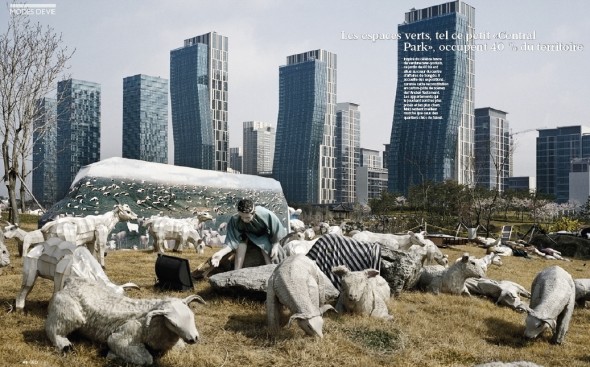

A Medium-Sized Big Data Hub
South Korea had an interest in creating an urban hub for conducting business in northeast Asia. Thus, Gale International, a global real estate development company, partnered with Korean construction and steel giant, POSCO E&C, with technology provided by Cisco, to create a medium-sized central marketplace for 65,000 residents and 300,000 workers.
People could live and work in close proximity, with full technological integration, where almost any device, building or road will be equipped with wireless sensors or RFID microchips. This will result in smart innovations such as streetlights that automatically adjust to the number of people out on the street. Homes would feature automated sensors, called domotica, where everything will be computerized and on a network. Either a realization of Sir Francis Bacon’s New Atlantis or Orwell’s 1984, this depends on where one draws the line between convenience and intrusion.
Francis Bacon’s “The New Atlantis” examined the creation of a utopian land where “generosity and enlightenment, dignity and splendor, piety and public spirit” are the commonly held qualities of the inhabitants of the mythical island of Bensalem.
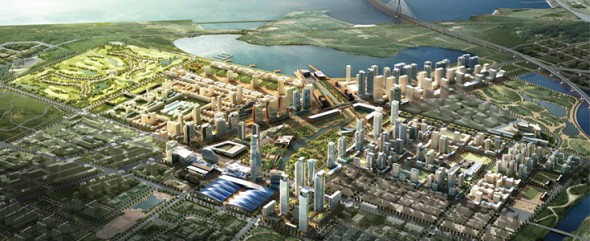

From its own promotion materials, “Songdo IBD boasts the wide boulevards of Paris, a 100-acre Central Park reminiscent of New York City, a system of pocket parks similar to those in Savannah, a modern canal system inspired by Venice and convention center architecture redolent of the famed Sydney Opera House.” One cannot resist seeing this well-financed corporate sustainability move as being contradictory to reducing our collective ecological footprint, despite the encouraging ghg projections. It resembles a more modest Dubai or Masdar City in Abu Dhabi, without the desert, as well as a number of African cities under construction.
Towering Buildings and Vacation Mega-Resorts: Sustainable Living?
Several major aspects of the master plan already are finished, including three projects by Kohn Pedersen Fox: Convensia Convention Center, an international school, and the 100-acre Central Park. KPF also designed the 65-story Northeast Asia Trade Tower, slated to open next year; at 305 meters, it will be South Korea’s tallest building.
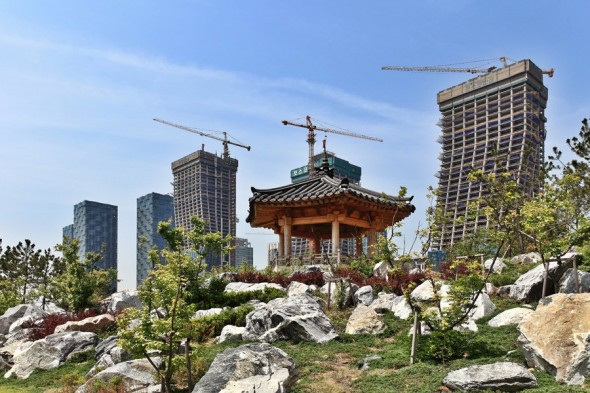
Outside the terminal, on the man-made island where it sits, development is underway on a mega-resort and casino, a water park, a shopping mall and several hotels. By the end of the decade, this new pleasure carnival will open and connect back to the airport by a magnetic levitation train that will make a 33-mile loop around the entire island.
httpvh://youtu.be/fHO_zkHPTaI
Greg Lindsay on Cisco’s Instant City Formula: Can we believe the hype?
Ambitious, but true sustainability is still in question when instant cities appear on raw land, in this case reclaimed fill on the Bay of Incheon. Moreover, Gale and Cisco plan to build 20 more across China, India, the Middle East and Africa. Its focus on technology might be over-speculative for how we will be surviving in the next ten to 100 years, but as long as the powers of Western capitalism keep rolling, Smart Cities are here, whether we like them or not.



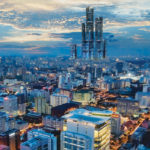
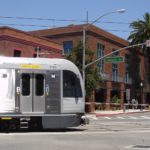

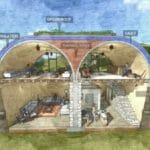
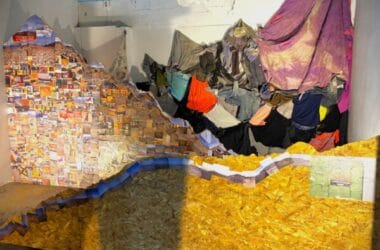





Good introduction to some of the development ideas in New Songdo. I will be moving there in a few months to work at a university in the Public Administration Dept. I come from an urban theory background in the depressed cities of the US, so this will be an interesting experience. I intend to look at some of the effects on social behavior for citizens from New Songdo’s planning, hitting right at the question of how urban technology shapes society.
Thanks for your research and I look forward reading more.
Thank you, David, for your comment. Please let us know how your experience in Songdo goes!
Pingback: Eco-Cities: An Environmental Solution to Sustainability? | WilderUtopia.com
Pingback: Earth Sheltered Homes: Energy-Efficient, Living With the Land | WilderUtopia.com
Pingback: Week 9-Smart City studies—Songdo and Chicago’s strategies in traffic management | Andrew's School of Sustainability
Pingback: Week 13b-Smart City studies—Songdo and Chicago’s strategies in traffic management | Andrew's School of Sustainability
I’m I’m in 8th grade and we’re learning about different types of Utopias in our world
I’m in 7th grade and I’m doing the same thing
Leonardo I am in 8th grade and we are doing the same
What school do you go to?
Pingback: Songdo South Korea